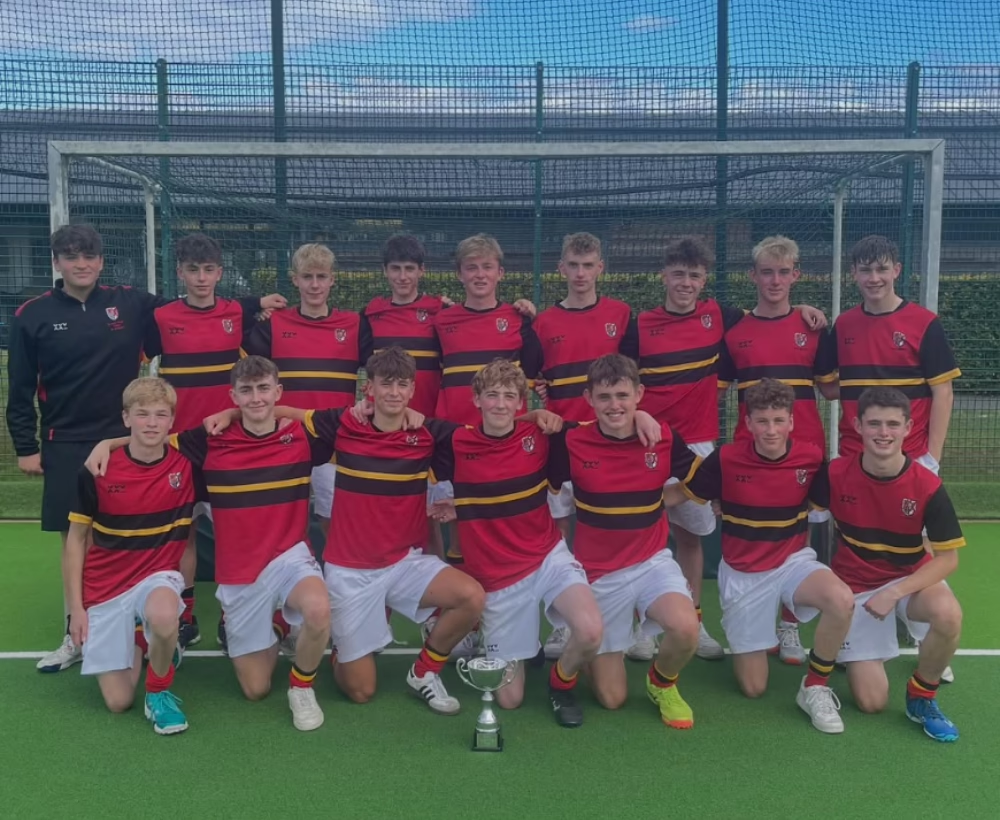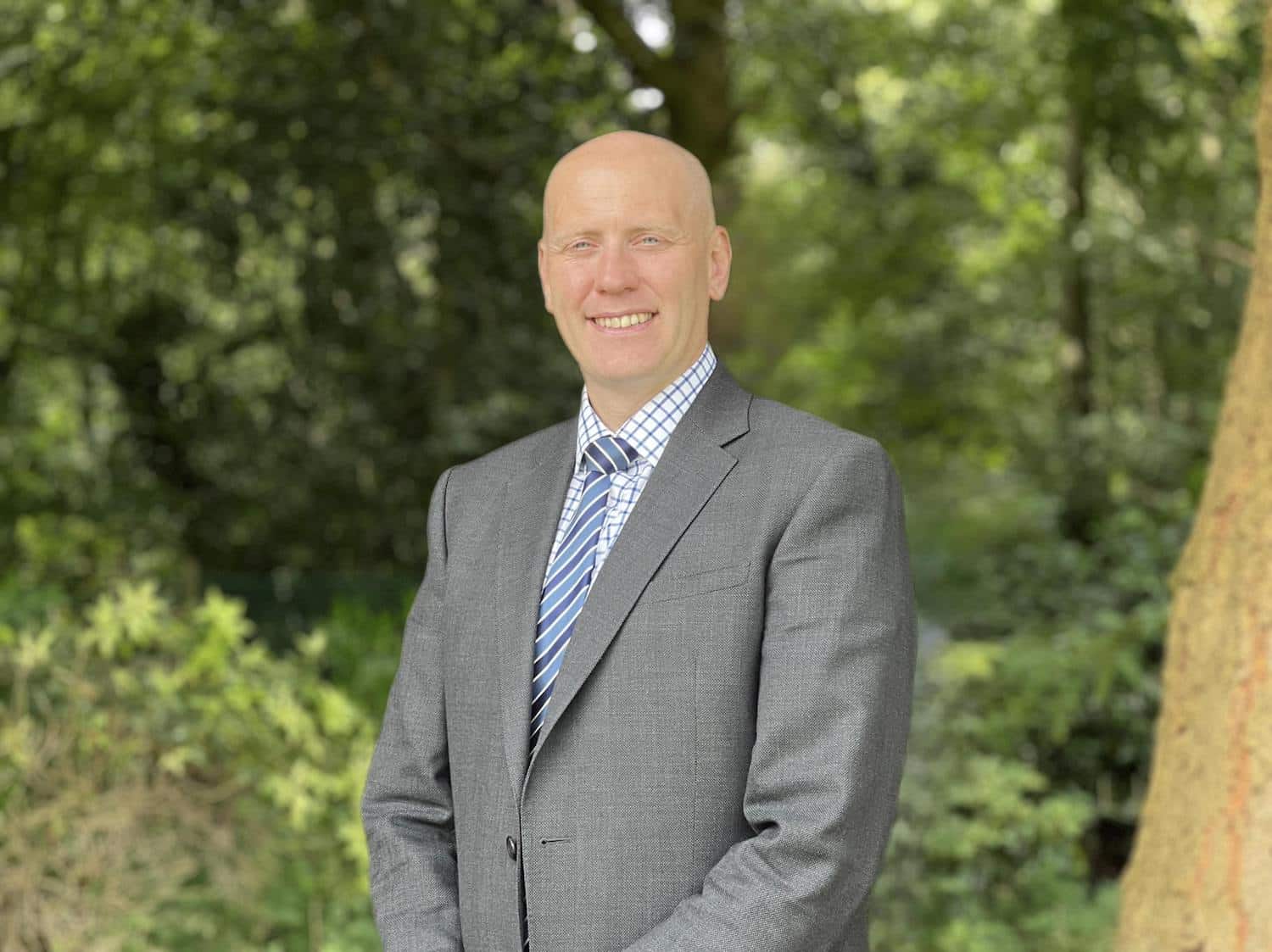What are your standout memories from your time at school?
I have lots of great memories from my time at school…many related to learning, but most related to sports, friendships and the variety that every week had. I particularly enjoyed the sporting opportunities that I was given at school and enjoyed many happy days on the cricket and rugby pitches.
Were there any teachers or experiences that influenced your career path?
Every teacher was very different, and many had a positive influence on my career path. I think the biggest thing that stayed with me into my career, was that each class relied on me using a unique combination of skills to be successful.
Looking back, what skills or lessons from school have helped you the most in your career?
I think the most important thing was understanding that being successful at school was not just about learning, but about being part of the whole school community. Everyone is different and having a good balance of activities allowed me to get the most out of the whole experience.
Did you have a clear idea of what you wanted to do when you left school?
Like many people, I didn’t really know what I wanted to do when I left school. I went to St Andrews University to study Social Anthropology, which only highlights my lack of a clear idea! After University I fell into recruitment, whilst looking for my first job. It probably aligns to the fact that I felt the best way to get a job was to speak to people and build relationships, which are key skills in recruitment.
You said you “fell into recruitment”—was there a particular moment or mentor that helped you realize it was the right career for you?
I was asking advice of someone in the recruitment industry, for their recommendation of where to go and what to do after finishing University. That person offered me a job to come and work for them, as the questions I was asking were questions they faced from candidates and clients on a daily basis. It gave me an opportunity to find out more about recruitment and I never looked back!
Social Anthropology is quite different from recruitment—are there any unexpected ways in which your degree has been useful in your career?
Employers are often keen to hire people who have done arts degrees as they will have developed an abundance of transferable skills. They are looking for the discipline that comes with studying, getting a good degree in an area of personal interest and the soft-skills that go alongside this. The arts degree that you study doesn’t necessarily move you into the next career step naturally, unlike other courses. I have found that for example, that some finance institutions tend not to hire people with business degrees, as those graduates can come in thinking that the theory is more important than real life exposure.
Studying Social Anthropology at University also taught me not to assume anything around social norms and to look deeper into how people behave in society. This was certainly important when I moved countries as it allowed me to understand me how religion, traditions and social norms change from place to place.
What attracted you to recruitment as a career?
I have always enjoyed being around people and there is no better industry for that. From an early stage in my recruitment career I really enjoyed speaking to people, whether they are looking for a job or looking to hire for their business. No person is the same and because of that, no day in recruitment is the same.
You’ve worked in different markets, including the UK, Ireland and Singapore – how do they compare in terms of recruitment trends and challenges?
Having worked in the UK, Ireland and Singapore it is interesting to experience how similar each country is in many ways, whilst being completely different in other ways. Specifically in recruitment the biggest challenge and difference between each country is the culture and communication style. It was really important to not presume that people see the world in the way I would, but also then understand the cultural reasons behind the social norms in each new market.
What does your role as Managing Director of Morgan McKinley involve day-to-day?
No day is the same, which is what I enjoy most. I get bored very quickly, so the fact that my job offers daily variety is a great thing. My day typically consists of a combination of internal meetings, client meetings, client entertainment, networking, data analysis, forecasting, planning, presentations and recruiting for our business.
How have you seen the recruitment industry evolve over the years?
Recruitment is an industry of relationships and customer experience, in spite of the increased impact of technology. The evolution in recent years is how our teams are using technology and AI to increase their reach both locally and internationally, whilst not having to damage the experience that our candidates and clients have in a recruitment process.
How do you see AI shaping recruitment in the next five to ten years? Are there any misconceptions about technology’s role in the industry?
I think this is a two-way thing – people are more comfortable in engaging with technology and of course younger generations are more computer literate. However, a recruiter making an initial phone call to a candidate to get details of their job search or CV background is all about people. There are now tools to help to write CVs, summarise data and prompt activities and AI is having an impact in these areas.
AI and automations also allow recruiters to keep more up to date and stay engaged with their clients, taking information about candidates and consolidating this to make the process easier. Recruiters however will still use their personal skills of relationship building and influencing, to work closely with the employers as they find the perfect candidate.
What key qualities make a great recruiter?
Some of the most important qualities are listening, quick learning, people orientated, good organisational and administration skills, influencing skills, competitive, hard-working and strong communicator.
How did you transition into leadership roles, and what challenges did you face along the way?
I hadn’t ever really planned to move into a people leadership role and spent most of the first part of my career as a successful individual contributor.
I think sometimes when you transition into leadership you have to recognise that everyone had their own style of being successful and that was something that I found challenging. For example, when you set a pace, someone might not be able to keep up due to their learning style or personality so you have to work on relationship building to better understand their strengths and weaknesses. Recognising that there isn’t a set way of doing things – the most diverse teams are the best teams. This took a while for me to learn!
What do you think makes an effective leader in recruitment and business more broadly?
I think the best leaders are authentically themselves and don’t try to follow a handbook. Great leaders also need to have a balance in their style, to make sure they have an impact when they need to.
Have you had any mentors or role models who shaped your leadership style?
When I was in Singapore, I joined Morgan McKinley partly because of the person who was managing the Singapore office at the time. I learned a great deal from him, as he was very good at keeping a balanced and cool approach, no matter how much he was stressed beneath the surface. I hadn’t realised until then, how much the demeanour of a leader sets the tone for everyone else.
How do you support and develop talent within your team?
The most important thing is to consistently provide feedback, both positive and negative. I really believe that constant feedback is the only way that people are able to improve. In addition, having a team environment where everyone feels connected and supported is crucial.
You’ve talked about the importance of giving feedback – how do you deliver difficult feedback whilst keeping employees motivated?
I feel this can be a combination of delivering it in the moment and having regular opportunities for mutual feedback. There are times when you need to deliver feedback in the moment as the task/objective is time critical but if you are used to having regular monthly or quarterly meetings regarding mutual feedback, then this is taken in a positive way and made more normal, so employees realise it’s not something to worry about, it’s something to help.
What advice would you give to pupils who are unsure about their career path?
I think the most important thing is to not rush a decision and do lots of homework on the career paths that you are considering. It is then crucial to speak to anyone in those industries, to get information about people’s real-life experiences. I would envisage that those conversations will quickly confirm or negate your interest levels.
What makes a candidate stand out when applying for jobs today?
Everything is important when looking at someone’s CV (i.e. education, previous employment, extra curricular interests etc). To really stand out, I would however encourage people to try and find some work experience in an area that they are interested in, as it really catches the eye of future employers on a CV.
What are the biggest mistakes young professionals make in the early stages of their careers?
The biggest downfall I see is when young professionals are trying to run before they can walk. All great careers are built on a strong foundation, where people take the time to really become an expert in what they are doing, before more responsibilities and opportunities come along.
Networking is often seen as key to career success – what tips do you have for building a strong professional network?
Your network is so important, but is also something you can only develop over time by working hard at it. My biggest tips to build a strong network are going to events, keeping in touch with contacts you meet and not being scared to follow up with new contacts, to ask for advice and guidance.
How do you see the job market evolving, and what skills do you think will be most valuable in the future?
The impact of AI on the workplace is the biggest disruptor I have seen in my career. It has the potential to change everything, but in my opinion this only highlights how important people skills will be for people’s careers in the future. Relationship building is something that is very hard to automate and replace.






